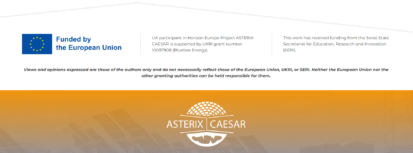
ETN Global facilitates and supports the development and advancement of project proposals relevant to our members. If you are interested in any open call and believe ETN Global can contribute to the formation of the consortium by connecting you with other members or by being part of the consortium, please email info[at]etn.global.
ETN Global Project Board is available to discuss any aspects related to the proposals and offer advise for both public and industry-funded projects.
On-going Projects
The scope of this industrial initiative is to review the publicly available information and connect with alloy development companies, with the aim of searching developed alloys to low TRL (1-3). The process consists of selection of two to three alloys to evaluate printability and assess key mechanical properties (Fatigue, Creep, Oxidation, Etc.). Manufacturability of a select alloy will finally be demonstrated by using a representative stage 1 gas turbine blade geometry.
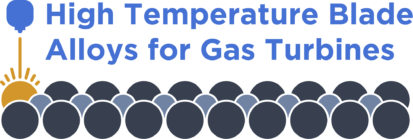
The main objective of this initiative is to determine whether ISO 21789 needs updating to account for hydrogen use in GT Enclosures. In addition to that, the experiments give a valuable input to the CFD analyses that are carried out by various members.
More in detail, the scope of work will consist of the following:
- Build 3D models of the GT Enclosure, 3 GT Enclosure sizes
- Run CFD dispersion simulations with ventilation
- Run CFD explosion simulations
- Post process CFD results and provide conclusions

The InsigH2t project is a 48-months project and will run between January 2025 and December 2028. The project is co-funded by the EU Horizon Europe Research and Innovation Framework Programme under the Clean Hydrogen Partnership and the Swiss Federal Department of Economic Affairs, Education and Research, State Secretariat for Education, Research and Innovation (SERI).
The InsigH2t project aims to advance the current scientific understanding regarding the effect of pressure on the turbulent burning rate, thermoacoustic response, and emissions performance of premixed hydrogen flames under relevant gas-turbines operating conditions. Hydrogen, with its high diffusivity and reactivity, poses significant challenges to its clean and efficient utilisation as a fuel in gas-turbines, due to the lack of understanding of its pressure-dependent turbulent burning rate, crucial for combustion stability in gas-turbines operation.
The consortium is composed of eleven partners from six European countries.
ETN Global is a communication and dissemination partner in this project.
Follow us on LinkedIn.

The InsigH2t project is supported by the Clean Hydrogen Partnership and its members (GA 101192349) and the Swiss Federal Department of Economic Affairs, Education and Research, State Secretariat for Education, Research and Innovation (SERI).

The HyPowerGT project is a 48-months project with an overall budget of approximately EUR 13.5 mil. and will run between January 2024 and December 2027. The project is co-funded by the EU Horizon Europe Research and Innovation Framework Programme under the Clean Hydrogen Partnership and the Swiss Federal Department of Economic Affairs, Education and Research, State Secretariat for Education, Research and Innovation (SERI).
The HyPowerGT project aims enabling gas turbines to operate on hydrogen, guaranteeing low NOx emission using neither catalysts, nor diluents or thermodynamic efficiency reduction. The core technology is a novel dry-low emission combustion technology (H2 DLE) able of handling any blend of natural gas and hydrogen up to pure hydrogen. Besides ensuring low emissions, the H2 DLE combustion technology offers fuel flexibility and response ability on par with modern gas turbine engines fired with natural gas.
The consortium is composed of nine partners from five European countries.
ETN Global is a communication and dissemination partner in this project.
Download our press release here, get more information on HyPowerGT website and follow us on LinkedIn and Twitter.

The HyPowerGT project is supported by the Clean Hydrogen Partnership and its members (GA 101136656) and the Swiss Federal Department of Economic Affairs, Education and Research, State Secretariat for Education, Research and Innovation (SERI).

The ASTERIx-CAESar is a 48-month project with an overall budget of approximately EUR 7.2 mil. running between October 2023 and September 2027. The project is funded by the EU Horizon Europe, UK Research and Innovation (UKRI), and the Swiss Federal Department of Economic Affairs, Education and Research, State Secretariat for Education, Research and Innovation (SERI).
The ASTERIx-CAESar focuses on developing a novel high-efficiency solar thermal power plant concept with an integrated electricity storage solution. It combines air-based central receiver Concentrated Solar Power and Compressed Air Energy Storage to maximize conversion efficiency and power grid energy management.
The consortium is composed of 17 partners from 10 European countries.
ETN Global is a communication and dissemination partner in this project.
Download our public presentation here, get more information on ASTERIx-CAESar website and follow us on LinkedIn and Twitter/X.
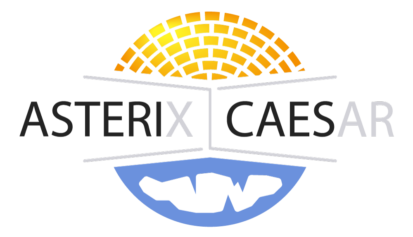
The FLEX4H2 is a 48-months project with an overall budget of approximately EUR 8.7 mil. and will run, between January 2023 and December 2026. The project is funded by the EU Horizon Europe Research and Innovation Framework Programme under the Clean Hydrogen Partnership and the Swiss Federal Department of Economic Affairs, Education and Research, State Secretariat for Education, Research and Innovation (SERI).
The FLEX4H2 project aims to move technological frontiers for low-emission combustion of hydrogen to fuel modern gas turbines at high firing temperatures and pressures, beyond the latest state-of-the-art. This will be achieved whilst maintaining high engine performance, efficiency, fuel and load flexibility, without diluents.
The consortium is composed of nine partners from six European countries.
ETN Global is a communication and dissemination partner in this project.
Download our press release here, get more information on FLEX4H2 website and follow us on LinkedIn and Twitter.

This project is supported by the Clean Hydrogen Partnership and its members Hydrogen Europe and Hydrogen Europe Research (GA 101101427), and the Swiss Federal Department of Economic Affairs, Education and Research, State Secretariat for Education, Research and Innovation (SERI).
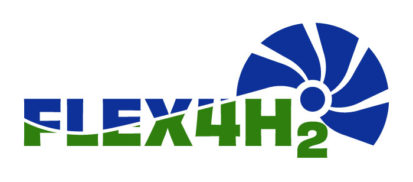
ISOP is a 48-month research and development project, with a total budget of EUR 4.45 mil., which will run from January 2023 until December 2026. The project is funded by the European Union through Marie-Sklodowska-Curie sub-programme (MSCA) of Horizon Europe and United Kingdom Research and Innovation (UKRI) public body.
The project aims to explore sCO2 based power generation systems’ technology and its potential through further research & development. By providing specialised training for 17 doctoral researchers to help establish the backbone of sCO2 technology the objective is to become a major contributor to the 2050 zero emissions target and lead to a crucial change in thermal energy power cycles.
ISOP consortium is composed of 16 partners: nine industrial beneficiaries, seven academic beneficiaries, and six associated partners. During the course of the project, ETN will receive two doctoral candidates. One will be placed for a period of 12 months, and working on the topic “Market uptake of supercritical CO2 power systems to enable carbon-neutrality by 2050”. The second candidate will be placed for 6 months and will cover the topic “Large Scale Energy Storage based on sCO2 systems”. Candidates’ secondment period will be specified later.
Download our press release here, get more information on ISOP’s website and follow us on LinkedIn .
![]() This project has received funding from the European Union’s Horizon Europe research and innovation programme under grant agreement No. 101073266
This project has received funding from the European Union’s Horizon Europe research and innovation programme under grant agreement No. 101073266
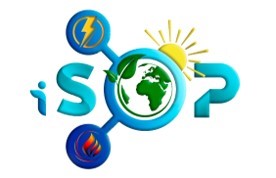
FLEXnCONFU (FLEXibilize combined cycle power plant through Power-to-X solutions using non-CONventional Fuels) aims to develop and demonstrate innovative, economically viable and replicable power-to-X-to-power solutions that combine all available options for the effective and flexible use of surplus power, from renewable energies to levelling the power plant load by converting electricity into hydrogen or ammonia, prior to converting it back to power. This will enable the design and operation of an integrated power plant layout that can untap additional combined cycle flexibility.
This four-year project started in April 2020, with a total budget of 12.6 million euros, bringing together the entire supply chain of centralised power generation.
Read ETN’s press release here and follow the latest FLEXnCONFU updates on LinkedIn and Twitter.
For more information, please visit the FLEXnCONFU website.
![]() This project has received funding from the European Union’s Horizon 2020 research and innovation programme under grant agreement No 884157
This project has received funding from the European Union’s Horizon 2020 research and innovation programme under grant agreement No 884157

Completed Projects
The main goal of ROBINSON (Smart integration of local energy sources and innovative storage for flexible, secure and cost-efficient energy supply on industrialized islands) is to help decarbonise industrialised islands through the development and deployment of an integrated energy system. The newly developed Energy Management System (EMS) will integrate different components, connecting locally available (renewable) energy sources, electrical and thermal networks, and innovative storage technologies.
The project, with a total budget of 8.37 million euros, involves 18 partners from 10 European countries, ETN being the coordinator of the project. One main pilot demonstrator will be located in Eigerøy (Norway), and two follower islands will be Western Isles (Scotland) and Crete (Greece).
You can read more about the project here and follow ROBINSON also on LinkedIn and Twitter.
For more information, please visit the ROBINSON website.
![]() This project has received funding from the European Union’s Horizon 2020 research and innovation programme under grant agreement No 957752
This project has received funding from the European Union’s Horizon 2020 research and innovation programme under grant agreement No 957752
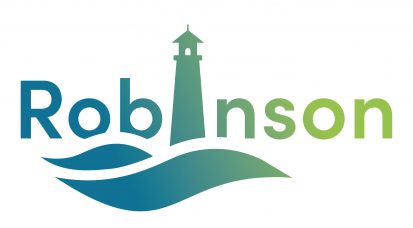
ETN’s unique L-PBF Machine Evaluation Initiative was developed among members of ETN’s Additive Manufacturing Working Group. The project reviewed capabilities of Laser-Powder Bed Fusion (aka L-PBF, Selective Laser Melting) equipment currently available on the market.
The involved organisations manufactured parts with Nickel Alloy 718 powder, according to specifications defined in collaboration with members of the ETN Additive Manufacturing Working Group. The parts to be produced included features of specific interest to the energy sector, such as thin walls and cooling channels. Performance, quality and productivity were key elements to be evaluated.
For more information, please visit this page.
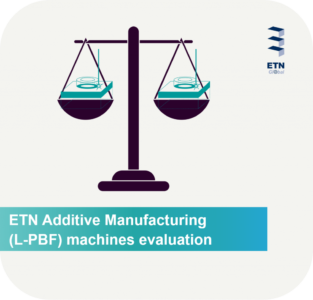
ETN’s CO2OLHEAT project (Supercritical CO2 power cycles demonstration in Operational environment Locally valorising industrial Waste Heat) started in June 2021.
CO2OLHEAT’s ambition is to support the EU’s energy efficiency targets and GHG emissions reduction. This translates into the project’s main objective – to unlock the potential of unused industrial waste heat and transform it into power. The development of innovative and cuttingedge supercritical CO2 (sCO2) technologies will be used to design and demonstrate in a real industrial environment the EU-first-of-its-kind sCO2 plant.
This EU funded project has an overall budget of approximately €18,8 mil. and will run for four years, between June 2021 and May 2025. ETN is the coordinator of the project.
Download our press release here and follow CO2OLHEAT also on LinkedIn and Twitter.
![]() This project has received funding from the European Union’s Horizon 2020 research and innovation programme under grant agreement No 101022831
This project has received funding from the European Union’s Horizon 2020 research and innovation programme under grant agreement No 101022831
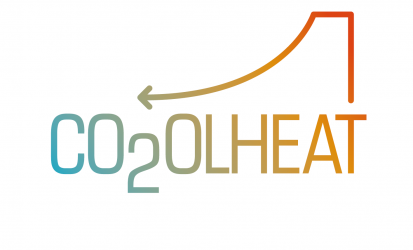
The EU funded PUMP-HEAT project (Performance Untapped Modulation for Power and Heat via Energy Accumulation Technologies) was kicked off in September 2017. The objective of the project is to increase the flexibility of the Combined Cycle power plants and the operation of gas turbines.
For more information, please visit the PUMP-HEAT website.
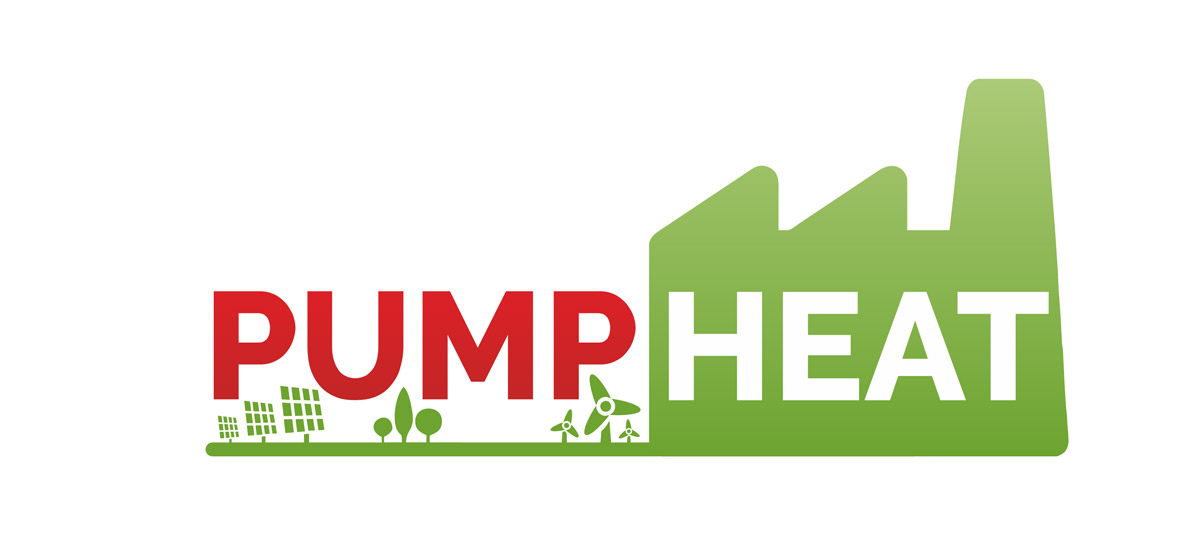
NEXTOWER shall introduce a set of innovative materials to boost the performance of atmospheric air-based concentrated solar power (CSP) systems to make them commercially viable. In particular, tower systems are appealing for the great environmental compatibility and offer tremendous potential for efficient (electrical and thermal) power generation. Yet, their industrial exploitation has been so far hindered by limitations in the materials used both for the central receiver – the core component – and for thermal storage. Such limitations dictate maximum working temperature and in-service overall durability (mainly driven by failure from thermal cycling and thermal shocks). Improving the efficiency of a tower system entails necessarily improving the central receiver upstream and possibly re-engineering the whole systems downstream to work longer and at much higher temperature, especially in the thermal storage compartment.
For more information, please visit the NEXTOWER website.

The Optimised Microturbine Solar Power System (OMSoP) project, co-funded by the European Union’s 7th Framework Programme for Research and Development aims to provide and demonstrate technical solutions for the use of state-of-the-art concentrated solar power system (CSP) coupled to micro-gas turbines (MGT) to produce electricity. The intended system will be modular and capable of producing electricity in the range of 3-10 kW.
In February 2013, the OMSoP project kicked off with 8 partners from 5 countries with a total budget of 5,8 million euro. Successful dissemination and implementation of the project results should result in the demonstration of the stand-alone-system, addressing the key innovation bottlenecks: the high temperature solar receiver, the stand-alone solar dish concentrator and the more reliable micro gas turbine.
For more information, please visit the OMSoP page.

The Hydrogen Integrated Gasification Combined Cycle (H2-IGCC) project co-funded by the European Union’s 7th Framework Programme for Research and Development, is based on the initiative outlined in the European Turbine Network’s (ETN) Position Paper on Gas Turbine Fuel Flexibility (August 2007).
In November 2009 the H2-IGCC project kicked off with 24 partners from 10 countries with a total budget of 17,8 million euro. Successful dissemination and implementation of the project results will be an important step towards opening up the market for Integrated Gasification Combined Cycle (IGCC) with Carbon Capture and Storage (CCS) by 2020, by increasing gas turbine efficiency and fuel flexibility.
For more information, please visit the H2-IGCC page.




